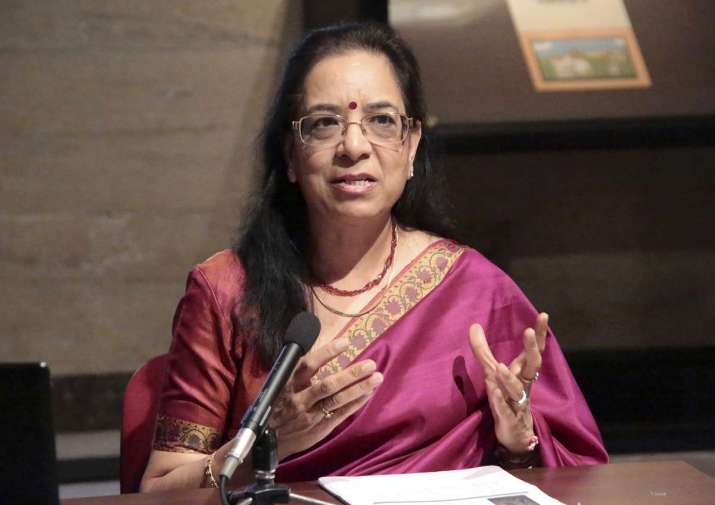
According to the eminent Indian scholar of Buddhist art and culture, Prof. Dr. Shashi Bala, “The treasure of Buddhist heritage in all forms has huge potential for society, which people need to understand.” During our meeting in India, we had an opportunity to discuss various aspects of Buddhist education and her experiences giving teachings in Russia and Bulgaria.
Prof. Shashi Bala explained that there are two main approaches to the study of Buddhism: the highly academic and the spiritual. Her advice is that academics should specialize in a single area as Buddhism is such a vast field of study that one cannot hope to be an expert in everything. In her own career, Prof. Shashi Bala chose to focus on Buddhist iconography, working to preserve and promote Buddhist heritage as her duty and service to society. Regarding the spiritual approach, she observed that people who are very spiritual often have conditioned minds, which can limit their perception of the Buddhadharma.
I was curious to know more about her experiences teaching in countries such as Russia and Bulgaria, and was fortunate to be able to help during her program in Bulgaria, translating some of her lectures for the Bulgarian audience.
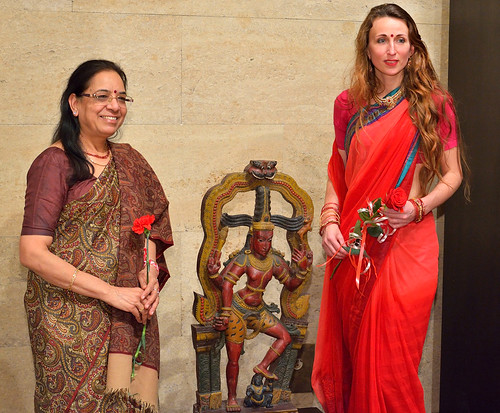
courtesy of Dechko Stefanov
“I have been to Russia four times and I’ve always had a feeling that Russians are very spiritual, humble, and polite, and can understand what is good or bad,” Prof. Shashi Bala said of her experiences. “When we talk about values, they are very good receivers. The first time I attended a conference on Nicholas Roerich in Moscow, I was amazed by how many people were there. During my most recent visit, I was invited by the Department of the History of Art of Ural Federal University in Ekaterinburg to speak on Buddhist art. My lectures about manifestations of buddhas and bodhisattvas, the symbolism of mandalas, and so on, were very technical and intended mainly for PhD students and professors, not for people without a background in Buddhist philosophy and art. But the lecture hall was full, with more than 80 people from different departments in Ekaterinburg, and even from Moscow. It was really amazing how they understood such complicated topics.
Prof. Shashi Bala then related an inspiring moment when a senior professor entered the hall in which she was speaking, and she felt as if the seven colors of the rainbow had filled the entire space, a manifestation of the “heart-to-heart feelings of friendliness between Russians and Indians, and the effulgence of Buddhism wherever it goes, in whatever way and form.”
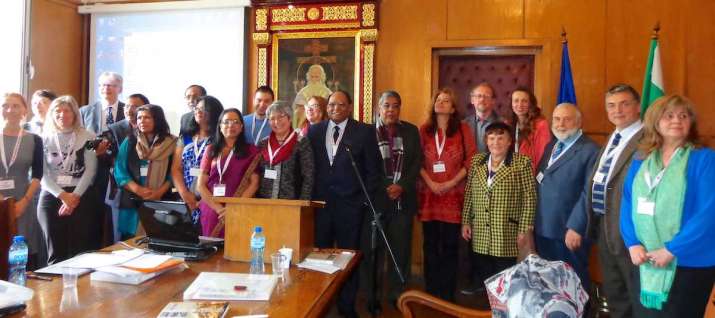
Asked whether she had sensed a revival of Buddhism in Russia, Prof. Shashi Bala’s reply was a definite yes, which she underscored with her perception of the spiritual needs of Russian people: “I think people in Russia feel that they need something that is not material and is beyond materialism. They need peace of mind, peace to live together, peace with nature, harmony with the cosmos, because so much has been destroyed and exploited.”
In March 2016, Prof. Shashi Bala visited Bulgaria for the first time to participate in a conference titled “In the Mirror of Dharma: Indian Culture Through the Ages.” Her intriguing talk, “Transcendence in Life: the Inner Dimension of Dharma,” touched deeply the international audience there, and in turn, Prof. Shashi Bala was fascinated by how many people attended the conference, and their sincere interest.
During her visit, Prof. Shashi Bala also delivered lectures on “The Assimilation of Siva and Vedic Deities in Japanese Buddhist Art” at the National Gallery of Bulgaria, and “The Life and Legacy of Atisha” at Sofia University “St. Kliment Ohridski.” Both talks were welcomed with great interest and many questions. “People in Bulgaria are interested to learn more and more about Buddhism,” Prof. Shashi Bala observed. Inspired by the positive reception she received, she added, “They are very warm, cooperative, and ready to exchange ideas about such topics.”
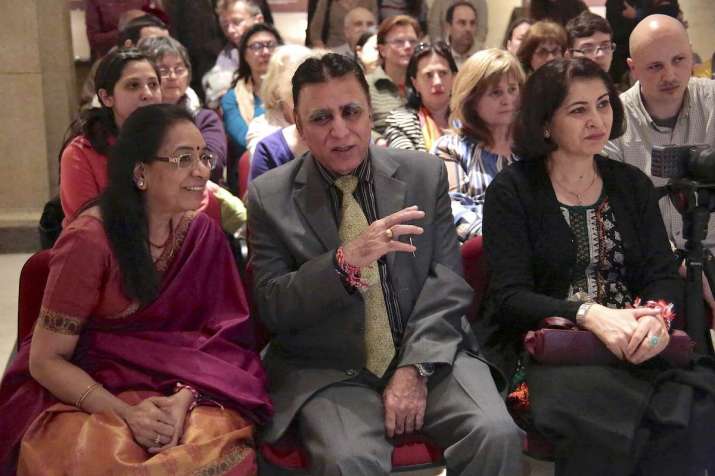
I asked Prof. Shashi Bala what could be done to improve the field of Buddhist studies in general, and she explained the different levels of studying, researching, and teaching Buddhism: at the uppermost level are the Buddhist scholars, followed by students. Next, at the third level, are public places such as galleries, which are intended for the public at large. Occupying the innermost level are the increasingly powerful social media. The most important thing, she noted, is to share the knowledge at each of the different levels while working with dedication and a proper mental attitude.
“Everyone wants peace and happiness, and is looking for a path in life, but without the proper knowledge, nobody can follow the path,” she explained. “I would not say that the right path is diminished, but to some extent it has faded in India and in many other countries. The most important thing is creating value for society and that one works with a sense of dedication, and not for selfish interests—for name, fame, or money. It all comes from the mind and the mental dispositions that in India we call sanskara. If your sanskara are purified, you can do it, and people will help you.”
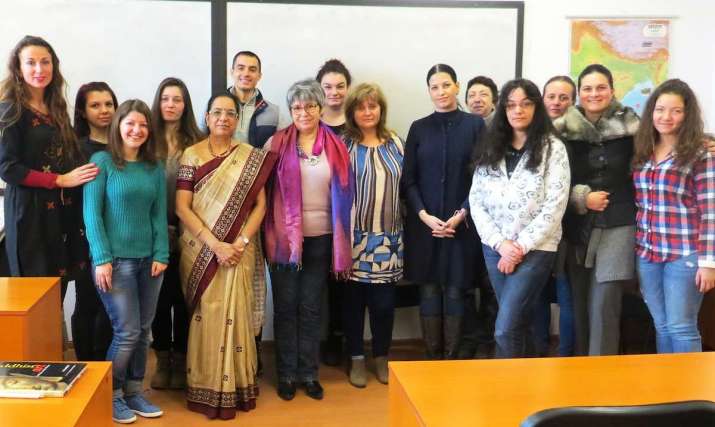
At the end of our talk, during the drive from Prof. Shashi Bala’s home in Ghaziabad to her office in New Delhi, she emphasized that the fundamental message of Buddhism, in her view, was transcendence.
“Transcendence in life is related to the good and bad qualities in our mind, which correspond to the six levels of existence, known as the Six Realms of samsara,” Prof. Shashi Bala explained. “As human beings, we all have qualities of hell beings, hungry ghosts, and animals, and the question is what the percentage is. Being human, we can also aspire to become divine by transcending the lower levels and think higher. We can attain enlightenment or gain wisdom, but the main idea is that we must think higher and then we will experience the feelings of sacrifice, love, kindness, and all the positive qualities that are needed in this world. Whenever the Dharma declines, bad qualities overpower the mind. To overcome them, we should take refuge in the Dharma and follow the Path. This is the value system that gives power to the mind and inspire us on ways to be good to others.”
See more
Presentation of Prof. Dr. Shashibala, National Gallery in Bulgaria














